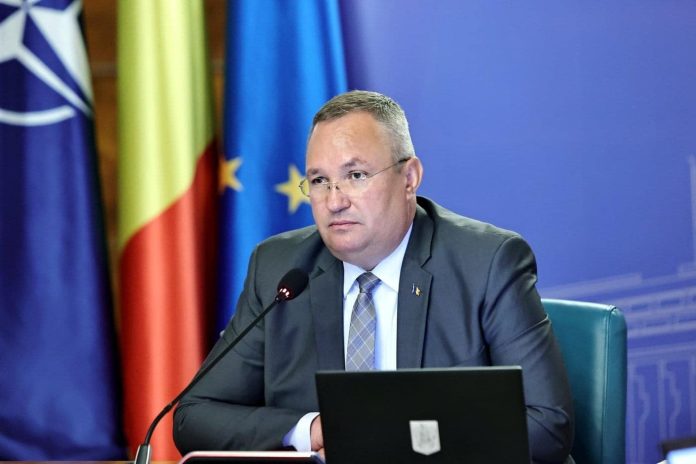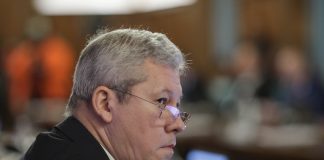National and collective resilience are key for credible deterrence and defence and the efficient fulfillment of the tasks of the North Atlantic Alliance, Prime Minister Nicolae Ciuca stated on Tuesday, at the opening of the „Euro-Atlantic Resilience Forum: Black Sea Perspectives,” organized by the Euro-Atlantic Centre for Resilience in partnership with the Romanian Senate, according to Agerpres.
„At a time when our security environment has become increasingly complex and threatening (…), boosting resilience to better prepare our ability to resist and respond is a central element in the Alliance’s activity .(…) In recent years, this concept has gained more visibility at the NATO level. It has evolved from energy and climate change to crisis management and response to hybrid threats, covering a wide range of situations, from societal to national and transnational levels. The key principle is that national and collective resilience is key for credible deterrence and defence and for effectively fulfilling the Alliance’s core tasks. We believe it is vital in efforts to protect allied societies, populations and shared values,” Prime Minister Ciuca pointed out.
He recalled that a commitment to enhance resilience against the full spectrum of threats, including hybrid threats, was adopted in 2016 in Warsaw and was followed in 2021 by a renewed commitment to resilience, when the need for a more integrated and better coordinated approach was underscored.
„As the level of threat to our security increased, NATO’s involvement in ensuring resilience increased,” said Ciuca.
In this context, the head of the Executive pointed out the fact that, in recent years, Russia has increased its destructive rhetoric and hybrid threats, in order to change the borders and reconfigure the security architecture according to its own interests, and today, he highlighted, „Russia is, without any doubt, the most serious and direct threat to Euro-Atlantic security.”
„And, given the current developments, it will remain so in the long term. In the face of this unprecedented threat, NATO responded promptly and appropriately, in a multi-level approach. (…) Our organisation did this by improving the Alliance’s deterrence and defence posture, providing assistance to partners in strengthening their resilience, as well as providing a full-spectrum response to all future threats and challenges, including cyber, hybrid, energy, CBRN, disinformation,” Ciuca also stated.
He added that NATO’s continued commitment to strengthening resilience was firmly reconfirmed at the Madrid Summit in June 2022.
„On this occasion, the allied leaders emphasized that resilience is a national responsibility and a collective commitment. In this way, our work to improve resilience will continue, including through objectives and implementation plans developed at the national level, guided by the objectives developed together by Allies. In the coming period, NATO will continue to accelerate its adjustments in all areas, increasing our resilience to cyber and hybrid threats and strengthening interoperability, based on civil-military cooperation,” Ciuca said.
The Prime Minister also showed that, in recent years, Romania has adjusted to these needs in order to counter numerous hybrid threats, not only by elaborating, last year, a National Recovery and Resilience Plan, but also by establishing new institutions and infrastructure to be able to face these challenges.
„E-ARC – the Euro-Atlantic Centre for Resilience – is part of this infrastructure. (…) In the relatively short amount of time since its inauguration (…), E-ARC has proven to be a valuable partner. Romania has a good reputation in the field of cyber security and this was clearly recognized by the EU member states when we won the tender to host the European Competence Centre for Cyber Security (ECCC) in Bucharest,” added Ciuca.
At the end, the head of the Executive underscored that, in the current context, a combination of individual national efforts with those of allies and partners would help to improve resilience.
„We all face troubled times, especially here on the Eastern Flank and on the Black Sea shores. But our individual national efforts combined with those of our allies and partners would help us improve resilience and protect our people and territories, be they national, European or NATO,” Ciuca also conveyed at the opening of the forum.
Agerpres




